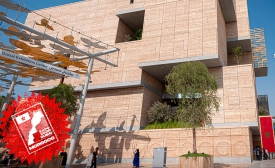morocco

Africa-Diaspora collaboration could tackle global challenges and reshape power dynamics.

This photo essay series explores Expo 2020 Dubai through historical context, individual country participation and PD opportunities through Expos.
The Moroccan Football Federation has announced it will bid to host the 2026 World Cup. [...] The World Cup has only been hosted once in Africa - in South Africa in 2010 - and this will be Morocco's fifth bid.
Fez, Morocco’s cultural and spiritual capital, may have lagged behind Marrakech when it comes to stylish riads and sophisticated restaurants, but a subtle transformation is under way along its medieval alleyways. Ancient buildings are being restored, designers are breathing new life into age-old crafts and chefs are opening exciting restaurants.
The Foreign Ministry seized the opportunity to highlight the close ties between Morocco and the continent during the celebration of Africa Day on June 8, and lauded the Kingdom’s policies regarding co-development, sharing of expertise and win-win partnerships in Africa. The celebration of Africa Day was organized by the Ministry of Foreign Affairs under the theme “Morocco, An Actor for a Collective Emergence in Africa.”

Headlines explore government campaigns to increase their countries' soft power.
Morocco is illustrative of a rising power that has cannily deployed its soft power toolbox, including investments, human development projects, media, culture and religion to boost stability in the Sahel and Africa. In an article on the World Politics Review on the contribution of four main players in the security arena in the region, Morocco was distinguished by the author, Anouar Boukhars, for succeeding to tap into the potential of soft power in its ties with African states.
The 2017 Joint Conference of Confucius Institutes in Africa was hosted by the Confucius Institute at the University of Zambia with the goal to “exchange experiences to enhance cooperation and promote the development of Confucius Institutes of Africa”. The spread of Confucius Institutes across Africa, however, is only half of China’s language strategy. In addition to promoting Chinese language learning, China is also encouraging its own citizens to learn the native languages of those countries that it has diplomatic relations with.







